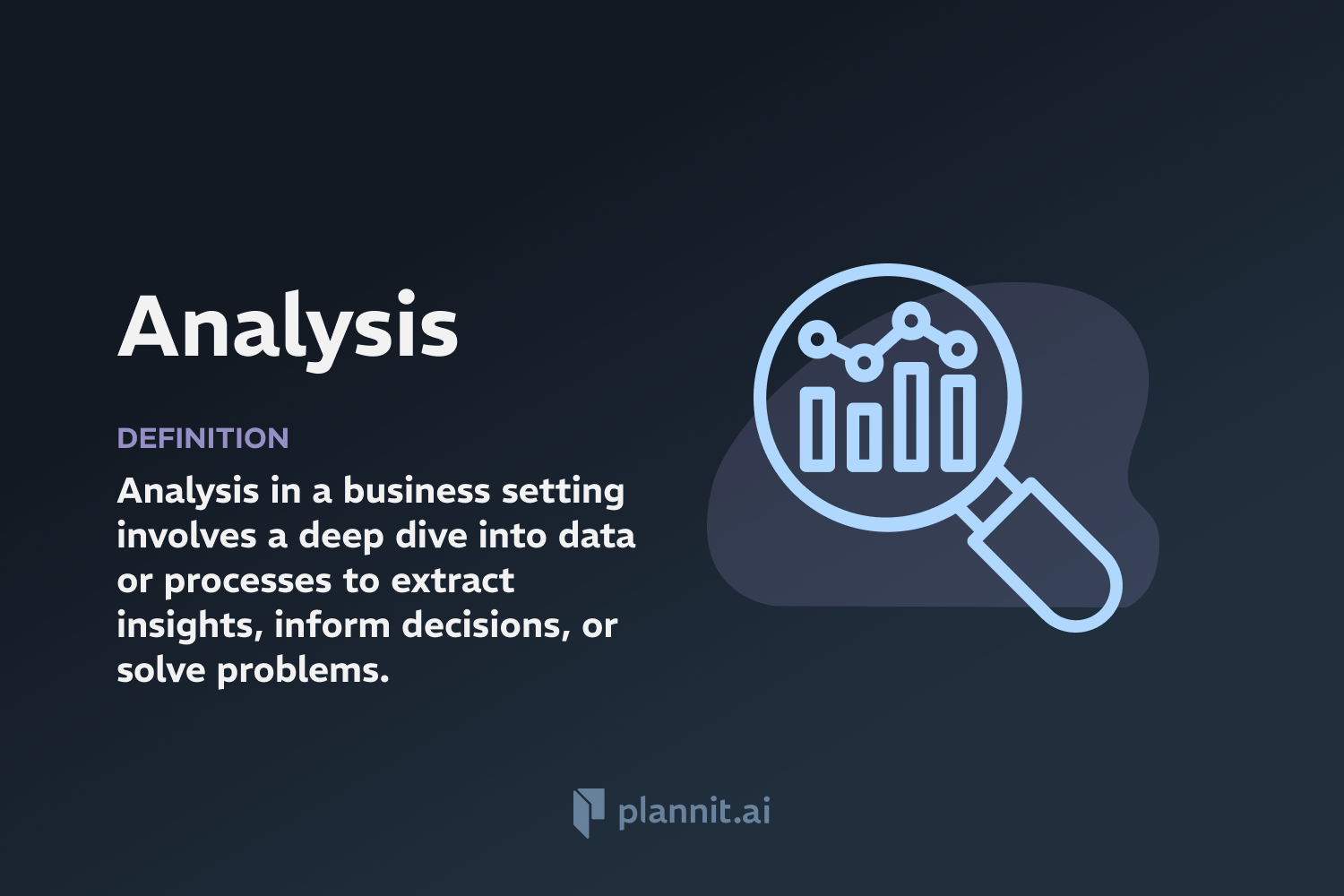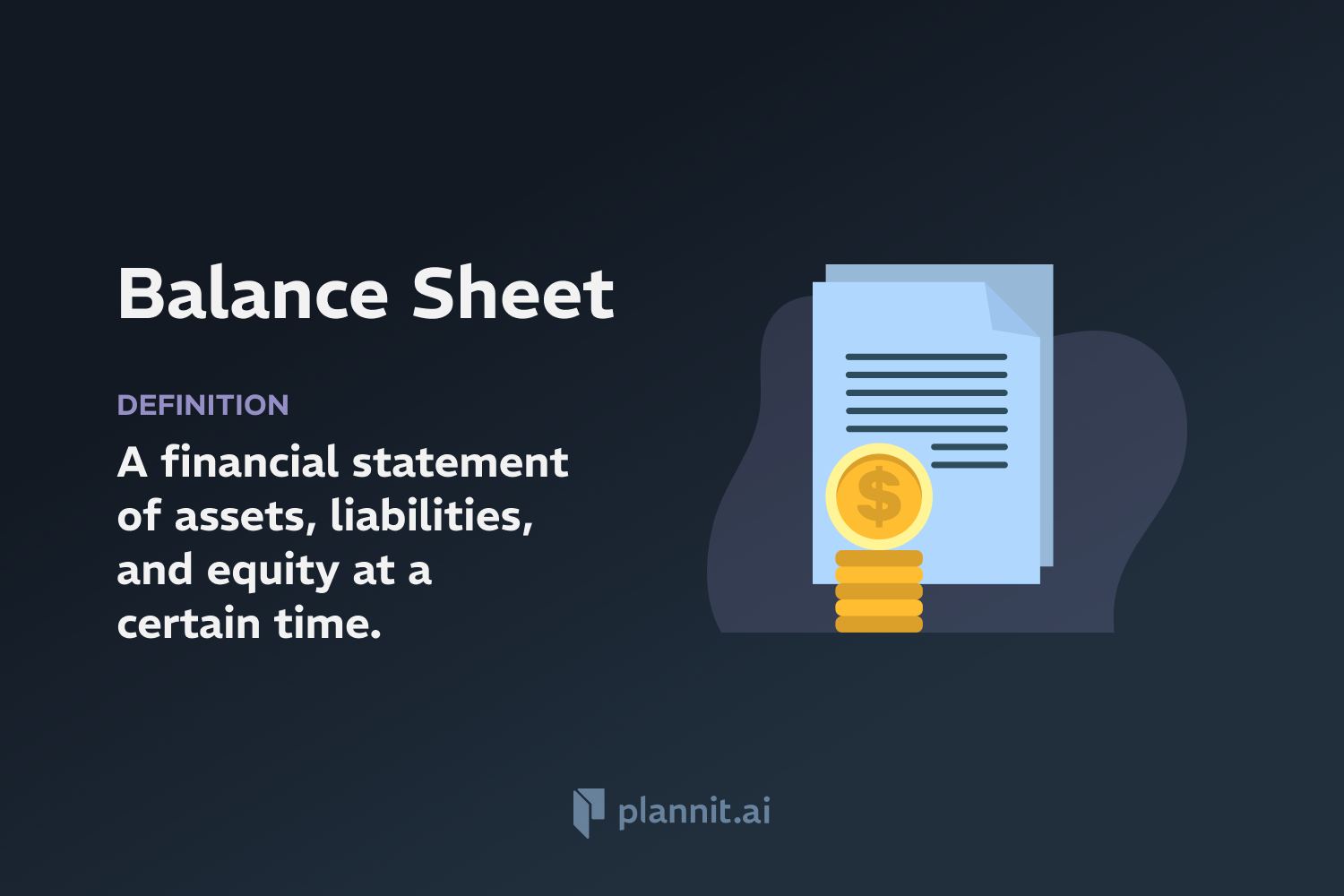Need Help With Your Business Plan?
Answer tailored questions and get a detailed business plan in minutes.
Analysis: Definition & In-Depth Explanation

Analysis refers to the process of examining, breaking down, and interpreting data or information to derive insights, make conclusions, and support decision-making. It is a fundamental aspect of various fields such as business, finance, science, and technology. In business, analysis can be applied to various aspects like financial data, market trends, operational efficiency, and competitive landscape to improve strategies and operations.
Purpose:
The purpose of analysis is to transform raw data into meaningful information that can inform and guide actions and decisions. It allows individuals and organizations to understand complex problems, identify trends, evaluate alternatives, and predict future outcomes. Effective analysis is crucial for strategic planning, risk management, optimizing performance, and enhancing overall productivity and competitiveness.
Example:
In a business setting, a company might perform a sales analysis to determine the sales performance of different products over the last quarter. By analyzing sales data, the company can identify high-performing products and regions, understand consumer behavior, and make informed decisions about inventory management, marketing strategies, and resource allocation.
Related Terms:
Data Analysis: The process of systematically applying statistical or logical techniques to describe and illustrate, condense and recap, and evaluate data.
SWOT Analysis: A strategic planning tool used to identify the Strengths, Weaknesses, Opportunities, and Threats related to a project or business venture.
Financial Analysis: The evaluation of a company's financial statements to understand its financial health and profitability.
Market Analysis: The assessment of a given market to understand its dynamics and competitiveness, including size, growth rate, trends, and customer needs.
FAQs:
What are the different types of analysis in business?
In business, common types of analysis include financial analysis, market analysis, risk analysis, competitive analysis, and statistical analysis, each serving different strategic purposes.
How does analysis differ from analytics?
Analysis is a broad term referring to the process of examining data, while analytics often refers to the methodologies and technologies used to perform complex analysis and derive predictive insights through statistical models and algorithms.
What tools are commonly used for analysis?
Common tools for analysis include spreadsheets like Microsoft Excel, statistical software like SPSS or SAS, and business intelligence platforms like Tableau, Qlik, and Power BI.
Why is analysis important in decision-making?
Analysis provides a factual basis for decisions, reducing guesswork and subjectivity. It helps decision-makers evaluate options, predict outcomes, and mitigate risks effectively.
Can analysis be biased?
Yes, analysis can be biased if the data is incomplete, inaccurately interpreted, or if the analytical methods are flawed. Ensuring objectivity and using robust methods are critical to mitigate biases in analysis.
Get funding with a business plan that will impress investors.
Starting a New Business?



